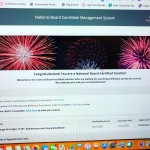I wonder what success we would find with students if we approached student’s behavior with the same inquiry based thinking we use for other problems we face? While I have never met a teacher who is in the field for the wrong reasons or isn’t trying to help students,it seems we are in the world of misguided advice, which hassomehow turned teachers from being empowered in their classrooms to support students,toinstead turningsome into feeling helpless.
I have heard several teachers, counselors, psychologists, principals, deans,and assistant principals say when working with a student, “I don’t know what else to do.They need to just be moved to another location or with another teacher.” I can absolutely sympathize.It does seem that students are coming to us with more trauma, more aggression, and more problems self-regulating. I’m just confused at when our first response has become,this student needs to be moved. What happened to the teachers and the team that says, “What else can Ior wedo?”
We have turned a corner,instead of asking how can we support this student,what we can implement instructionally,or what can my team do to teach this student, we areinstead at times blaming or otherwise looking for something outside us to fix the problem. My concernisthis,research and studies show that educators have the knowledge, expertise and the ability to impact students more than any other factor. We must be the fix. So, if we are turning a student away, using suspension, or alternative programs to help children,are we not just creating a bigger problem? How does a child ever feel a part of their community, if our response is to send them to the program down the street?
Maybe the challenge is that teachers are not getting enough professional development on supporting students. Or perhaps we have gone to a system focusing on such ahigh academic achievement where teachers don’t feel like they have the ability to take the time to support a student? Or could it be the problem is that teachers do not have the tools and resources embedded in their learning environment to provide for the student?
I’m sure there are a hundred reasons why this continues to be a problem. I’m sure there are also thousands of teachers and team members begging to have the tools to help a student, but still feel that they do not have the right tools or they have too many other responsibilities. I know the success starts and ends with the teacher who asks not where can this student go, but what is this students behavior communicating? What can I do to help this student instead of who else can save me from this student that is a starting place.
I know if we don’t start taking a step back to keep the relationship with the student at the forefront of everything we do,and instead get angry, yell or even punish these students, we only create a larger gap and a bigger problem.
I have engaged with thousands of teams, developed hundreds of behavior plans, and the one difference between success and failure in every case is not how much the student struggles, but how much time and support the team is willing to put into building a strong relationship with the student. No matter what the student does, the success comes from the team.










Comments 1
Austine,
Thank you for sharing this post. Somewhere along the way, students become alienated and we stop seeing them as an opportunity. We are unable to recover lost relationships and although we have resources, we are unable to access them to really look at what the behaviors are telling us. We default to “what is wrong?” instead of “what is happening?” Thank you for bringing this topic back into the forefront and helping us see it from a different perspective.